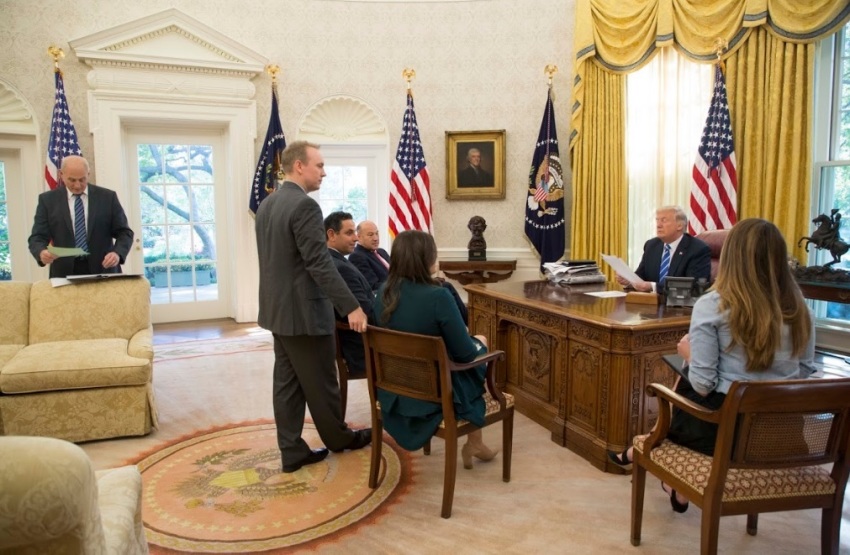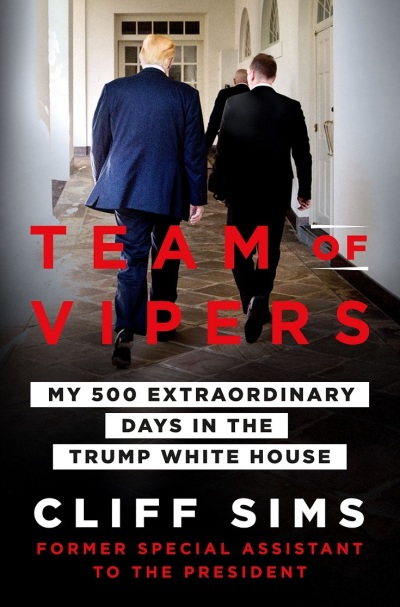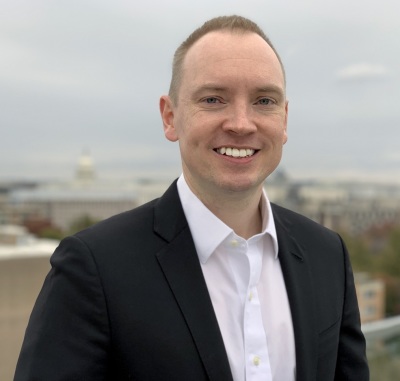Former Trump admin insider talks 2020 election, challenges to his Christian faith

Former Trump administration official Cliff Sims recently garnered national headlines over the release of his book about his time at the White House.
Titled Team of Vipers: My 500 Extraordinary Days in the Trump White House and released last month, Sims documents his experiences working under Trump, both the highs and the lows.
The title was inspired by the book Team of Rivals: The Political Genius of Abraham Lincoln, a 2006 best-selling book about the diverse political views and personalities of those working in the Lincoln administration.
“I wanted to portray the President as he really is — a multi-dimensional person, with extraordinary gifts and major flaws, just like the rest of us,” Sims explained to The Christian Post.
“I didn't think much about whether things were ‘positive’ or ‘negative,’ I just wanted to peel back the curtain and show him how he really is behind the scenes.”
Sims’ book stirred outrage from President Donald Trump, whose campaign filed an arbitration claim against Sims, alleging he violated a non-disclosure agreement, according to CBS News.

In response, Sims filed a lawsuit in district court on Feb. 11 accusing the Trump administration of trying to unlawfully silence him.
“The U.S. government is intentionally and unconstitutionally engaging in a subterfuge effort to use a private entity, Donald J. Trump for President, Inc., to do its bidding to silence Mr. Sims when it is really the intense powers of the presidency coming down upon a sole individual,” read the suit, as reported by CBS.
The Christian Post reached out to Sims before the district court lawsuit was filed. He responded via email to questions on matters including his experiences working in D.C., how his Christian beliefs were put to the test, and his views on the current 2020 presidential election field. Here are excerpts from the correspondence.
CP: In the book, you explained that your opinion of Senate Majority Leader Mitch McConnell changed considerably when you finally worked alongside him during your time in the administration. Were there any other members of Congress who you had a major change of opinion on due to your time in Washington, D.C.?
Sims: After seeing [McConnell] operate, I came to respect his toughness.
Unfortunately, most other members were exactly what I had always assumed: paralyzed by the fear of political retribution and a lot more concerned with the next election than they are with the next generation.
There are some really good members of Congress who are working hard, trying to do the right thing, hoping to make a real difference on behalf of their constituents. But most of them aren't the big names you've probably heard.
CP: On pages 190-194, you spoke about President Trump's evangelical advisory board, saying that you never heard them challenge him on points of moral concern. However, according to evangelical Trump adviser Johnnie Moore, there have been many times when board members tried to influence Trump on certain issues, like immigration and prison reform. How do you respond?
Sims: I don't want to paint the faith advisory board with a broad brush — there are some members of the board who are making a genuine effort to provide a Christian perspective on tough issues, in a place where that perspective is often lacking. But I found some of the board to be mainly interested in maintaining their proximity to power, even to the point of trashing "rival" faith leaders to keep them from threatening their own position close to the President. There are specific anecdotes in the book that illustrate that point.
I also write in the book that my greatest regret from my time in the White House is that I wasn’t a better picture of my faith to the President and my colleagues. I’m haunted by the late author Brennan Manning’s quote, “The greatest single cause of atheism in the world today is Christians who acknowledge Jesus with their lips and walk out the door and deny Him by their lifestyle. That is what an unbelieving world simply finds unbelievable.”
So I'm certainly not just pointing my finger at other people.
CP: The impression I got from reading your book was that it was very challenging to your Christian faith to work in the administration. Do you believe that living a Christian life and effectively working in an environment like the White House are just plain incompatible?
Sims: I don't think they are incompatible, it's just hard not to lose yourself in it all and suddenly wake up one day realizing you're finding your identity in your job, or your proximity to power, rather than in your faith. As I write in the book, on a practical level, the greatest takeaway from working in the White House was that I want to make sure my life’s priorities are in order. God created work. I know it is a huge part of his plan for my life and he can be glorified in it and through it. But I don’t want to be consumed by it.

CP: What steps have you taken to secure your life's priorities since leaving the administration?
Sims: I'm a creature of habit, so the main thing is recommitting myself to a daily routine of self-improvement spiritually, mentally and physically (I wrote a blog post at the turn of the new year about the approach I take to this). Spiritually, it all starts with spending more time in the Bible — reading, studying, reflecting and praying. I've enjoyed the "Maxwell Leadership Reading Plan" inside YouVersion's Bible app. I [have] also gotten a lot out of the "How to be a Man" Bible study by my friend Rick Burgess.
I've focused more on my marriage — my wife, Megan, and I are currently in the process of adopting a child from Colombia.
Overall it's been about remembering that the only way I'm going to be fulfilled is by making sure I'm in the center of what God's will — not my will — is for my life.
CP: Already people are declaring their intentions to run for president in 2020. If the election came down between Trump and any of the current announced candidates that you know of, who would you vote for and why?
Sims: In the book, I write about considering whether to join the Trump campaign in 2016 and that I couldn’t think of a single thing that would have been made better—for my country, my family, or myself—by Hillary Clinton being elected President. If it's another binary choice in 2020, I will choose the more conservative candidate. We're at a point now where Democrats are refusing to even allow a vote on a bill that would require doctors to care for babies who survive a failed abortion attempt. Have we actually come to a moment in which even infanticide is a partisan issue? It's insane.



























